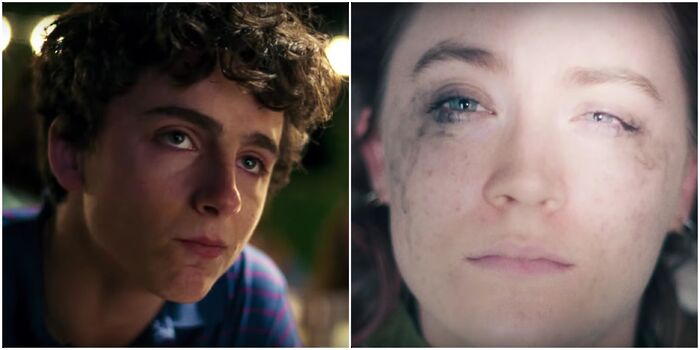Incredibles 2: A feminist film for the whole family
Alex Jimenez-Nimmo explores the gender dynamics of one of the summer’s biggest films

Before seeing Incredibles 2, I was scared. We live in a cinematic era of sequel fatigue, in which there is always something beyond “the end”. Now I was about to see the sequel to one of the most cherished animated films of all time.
The witty writing and upliftingly identifiable family at its heart makes The Incredibles one of the pinnacles of Pixar Studio´s oeuvre. Since its release in 2004, fans of the first film have been wondering when there would be a sequel to the Parr family´s exploits. So why the long wait?
There has been a noticeable trend in upcoming animated movies where gender stereotypes are constantly being challenged
Director Brad Bird has stated that he decided to wait for this moment to release Incredibles 2 because he did not want a rushed-out sequel for a simple paycheck. Bird elaborated by saying that his main priority was “making something that people are going to enjoy 100 years from now”.
I believe that Incredibles 2 could not have come out at a better time, particularly given the feminist message underpinning the narrative. There has been a noticeable trend in upcoming animated movies where gender stereotypes are constantly being challenged. Just look at the trailer for Wreck it Ralph 2, where one of the female characters explicitly asks the question "Do people assume all your problems got solved because a big, strong man showed up?". Disney´s issues with the representation of female characters is vox populi.

Acknowledging this problem is a positive step but there’s a long way to go yet in terms of execution. As a feminist film-goer, a couple of painfully forced lines about the shortcomings of male characters (for instance, the “hapless male” line in the Lego movie 2 trailer) is hardly likely to satisfy. Far from being reactionary, Incredibles 2 puts a new spin on “having it all” that embraces both gender roles.
Incredibles 2 enters uncharted territory by exploring the underrated theme of positive compromise
The film reflects the struggle for gender equality magnificently. It takes place directly after the events of the first film, when superheroes are still illegal, and the Parr family have to remain in hiding. However, they are soon contacted by the brother-and-sister duo Evelyn and Winston Deavor. The siblings propose a PR stunt, whereby cameras are attached to superheroes’ suits in an attempt to clean up their public image. They suggest that Elastigirl, rather than Mr Incredible, leads the experiment, as her powers are the least destructive.


So, Mr Incredible is left to take care of an uncontrollable Dash; a temperamental Violet, who is feeling the sting of her first crush; and Jack-Jack, the scene-stealing baby who is learning to master his many powers.

At first, Mr Incredible is devastated by the news, after all, the first movie focused almost entirely on him, and he struggles to let his wife shine in the spotlight. In a world where many men still would prefer to be earning more than their partners, this is a bold move that showcases a broader understanding of masculinity.
Both Mr Incredible and Elastigirl realise that neither of them can achieve full fame and glory without the other or without the family as a whole
Nonetheless, he gradually learns that being a superhero is not just about fighting crime but that also “Done properly, parenting is a heroic act,” as the iconic Edna Mode (voiced by Bird himself) points out so aptly. Incredibles 2 enters uncharted territory by exploring the underrated theme of positive compromise, in other words, how to strike the right balance between gender roles.
The more equitable distribution of parental duties has a beneficial impact on the three superkids. As the narrative progresses, they too learn to swap “gender-assigned” tasks. By the end of the movie, both Mr Incredible and Elastigirl realise that neither of them can achieve full fame and glory without the other or without the family as a whole.
When asked about the concept of female empowerment in the film, Holly Hunter, the voice of Elastigirl, replied that “There are giant responsibilities in raising children, and it’s a responsibility that’s wonderful if it gets to be shared by two people, whether it’s two men, two women, a male and a female.” It is poignant and refreshing to hear women both on the big screen and in the real world speak up about the pressures of a work-life balance. Although it would be even better if male voices could give the same emphasis to this issue (since the question of family-work life seems to only be posed to women).

Films like Incredibles 2 should be celebrated for this very reason. I watched it in a cinema in Madrid, in a country where the concept of “machismo” is ingrained in society, as this year´s feminist protests have highlighted. As soon as the end credits started rolling, the audience, both female and male, young and old, gave the film a standing ovation. Incredible indeed.
 News / SU reluctantly registers controversial women’s soc18 December 2025
News / SU reluctantly registers controversial women’s soc18 December 2025 News / CUP announces funding scheme for under-represented academics19 December 2025
News / CUP announces funding scheme for under-represented academics19 December 2025 Features / Should I stay or should I go? Cambridge students and alumni reflect on how their memories stay with them15 December 2025
Features / Should I stay or should I go? Cambridge students and alumni reflect on how their memories stay with them15 December 2025 Fashion / The art of the formal outfit 18 December 2025
Fashion / The art of the formal outfit 18 December 2025 News / Dons warn PM about Vet School closure16 December 2025
News / Dons warn PM about Vet School closure16 December 2025










